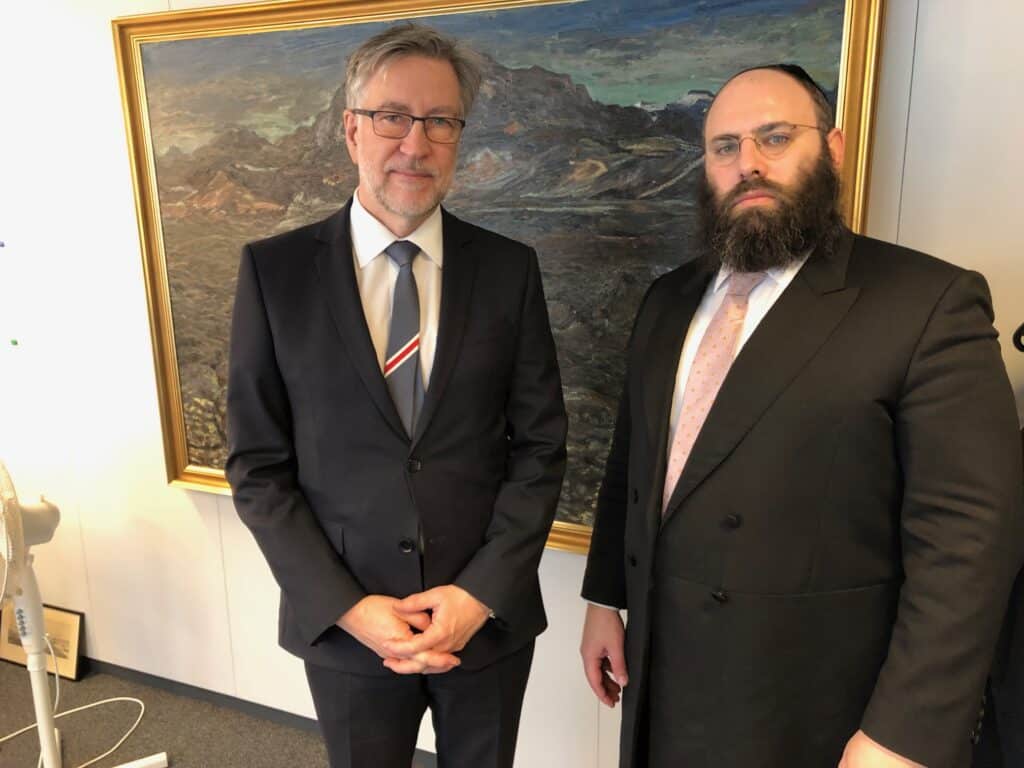La EuropeanJewishAssociation, EJA por sus siglas en inglés, ha iniciado su conferencia anual en la ciudad de Oporto, en Portugal, coincidiendo con los 75 años desde la independencia de Israel y el centenario de la comunidad judía en la ciudad portuguesa que comienza a dar pasos cada vez más grandes en el presente. En un encuentro que ha reunido a líderes, representantes y periodistas de las comunidades judías (aunque también con excepciones) se ha promovido una sentencia al antisemitismo que crece en Europa y amenaza con expandirse hacia el resto del mundo.
La votación y ratificación de los líderes judíos para llevar la discusión del antisemitismo a Bruselas fue el cierre de una jordana que deja una sensación y una valentía para ir por nuevos desafíos.
Mientras los cohetes de la Yihad Islámica desde la Franja de Gaza cruzaban a territorio israelí y los atentados terroristas se incrementaban desde el norte hasta el sur, alrededor del mundo se lograba detectar más de 50 ataques antisemitas por día. Sobre esta cifra, entre otras cosas, puede concluirse que en la realidad estos ataques son muchos más que los que se denuncian.
Al mismo tiempo en España, un país democrático y que abraza el estado de derecho, la comunidad judía de Barcelona era atacada en su sinagoga Maimónides. Pocos meses antes, la alcaldesa de la ciudad catalana, Ada Colau, promovía la ruptura de los lazos de hermanamiento con Tel Aviv y lo presentaba como una deuda pendiente en su activismo político. En año 2023, la alcaldesa de Barcelona hizo política con el antisemitismo. La situación es todavía peor en países como Holanda, donde los representantes de la comunidad señalan el temor y rechazo de los judíos a vivir allí, en Bélgica, la capital de la Unión Europa o en Alemania.
La desinformación y la falta de rigurosidad periodística a la hora de cubrir el conflicto en Oriente Medio queda siempre en evidencia ante cada escalada entre Israel y grupos terroristas de los territorios bajo control palestino. Esta distorsión ocurre en América Latina como también en Europa, en donde los títulos de muchos medios de comunicación equiparan la defensa de un país soberano y la conformación de una agrupación denominada, ni más ni menos, como yihad.
Aunque sea hasta absurdo aclararlo, jamás puede inferirse que en Oriente Medio hay un enfrentamiento simétrico, sino una utilización del terrorismo escudado en hombres, mujeres y niños civiles a quienes utilizan de escudos humanos cuando los operativos de las FDI desbaratan células yihadistas en la Franja de Gaza o en Judea y Samaria.
El punto central de la conferencia en Oporto tiene que ver con el antisemitismo frente al exponencial crecimiento de los ataques, hostigamiento y persecución ya no sólo contra los judíos, sino también contra los no judíos que defienden a Israel o que simplemente no abogan en equiparar a un país con el terrorismo. La desinformación en la política del Medio Oriente lleva a un regadero de violencia y guerra discursiva en las principales redes sociales.
Hay un reclamo persistente de los líderes de las comunidades judías europeas para controlar y ser proactivo en la denuncia del contenido antisemita que se revista de teorías conspirativas y una espiral del racismo. La preparación y el activismo que promueven los grupos de líderes jóvenes es para destacar: es importante llevar más y mejor información a las universidades que son las casas de estudio en donde se están formando académicamente los dirigentes de un futuro no tan lejano.
En este sentido, una de las patas jóvenes de la organización, Juan Caldes Rodríguez, presenta su plan desde Bruselas que debería ser considerado también para auxiliar a las comunidades judías en América Latina que están emprendiendo una batalla muy desigual contra el antisemitismo en países donde los grupos proiraníes y el islamismo toma cada vez más fuerza alimentándose de la baja calidad institucional, judicial y democrática. La lucha contra el antisemitismo debe ser parte de la agenda política iberoamericana, impulsando y formando a quienes decidan pelear por la verdad.
Dos días junto a la EJA en Oporto permiten a un no judío, como es mi caso, conocer parte de la realidad que las comunidades viven. Resulta increíble escuchar en el año 2023 que hay una comunidad que busca ser excluida y es constantemente amenazadaante de los ojos de una opinión pública internacional que no sabe, no puede o no quiere enfrentar al enemigo en común. El silencio aturde y la comunidad judía comienza a alertar y a moverse para que el pasado no se repita.
https://www.semanariohebreojai.com//articulo/6804
















